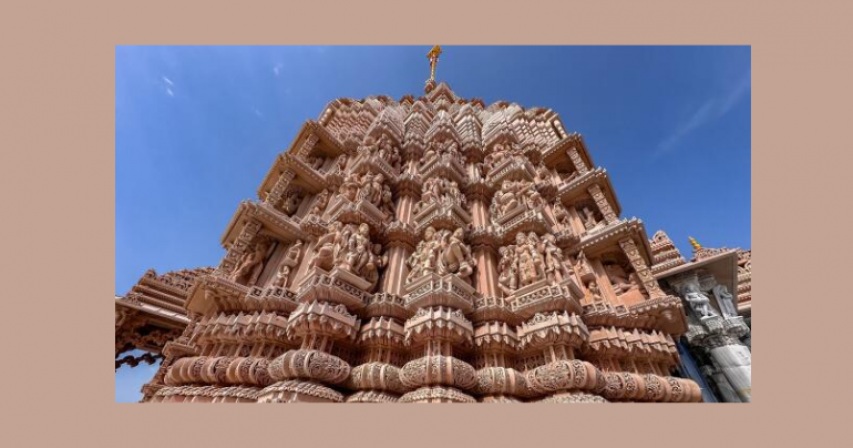Hindu temple Abu Dhabi: What to wear, norms; 20 things visitors need to keep in mind

The BAPS Hindu Mandir, located in Abu Dhabi, stands as a testament to architectural brilliance and spiritual significance. Serving as a place of worship for the Hindu community, it welcomes visitors of all faiths to partake in its sanctity and serenity. Following the recent 'Festival of Harmony', which saw an impressive turnout, the temple is now open to all, offering guidance and assistance through dedicated volunteers and staff from BAPS Swaminarayan Sanstha.
Before planning a visit to this sacred space, it's essential to understand and adhere to certain etiquette guidelines. These guidelines, compiled by Khaleej Times, aim to ensure a respectful and harmonious experience for all visitors.
Modesty in attire is of utmost importance. Visitors are advised to dress conservatively, ensuring that their clothing covers their shoulders and knees respectfully. Any clothing with offensive designs or slogans, as well as transparent or tight-fitting garments, are strictly prohibited to maintain the sanctity of the temple complex. Failure to comply with these guidelines may result in refusal of entry.
Pets are not allowed within the temple premises, and visitors are kindly requested to leave them at home. Similarly, outside food and beverages are not permitted, with Sattvic food available onsite for those in need.
Drone usage is strictly prohibited unless prior approvals have been obtained from local authorities and communicated to temple staff. Additionally, children must be accompanied by adults to enter the temple premises.
When it comes to baggage, visitors are allowed to carry personal pouches and purses, but larger items such as bags, backpacks, and cabin luggage are not permitted within the temple premises. It's advisable to leave such belongings in vehicles upon arrival.
Security measures are in place to ensure the safety of all visitors. Entry points are equipped with X-ray scanners and metal detectors to detect and prohibit the entry of dangerous objects such as knives, lighters, and matchboxes.
As a smoke-free zone, smoking, vaping, and the use of tobacco products are strictly prohibited throughout the temple complex, including parking areas. Similarly, the consumption of alcohol is strictly forbidden, and visitors in an intoxicated state will be denied entry.
Translation and interpretation services are allowed only under the supervision of temple tour guides. Visitors are required to remove their shoes before entering the temple, with designated areas provided for shoe storage. Special temperature-controlled tiles are installed for barefoot walking.
While mobile phones and photography are allowed around the exterior of the temple, they are strictly prohibited within the temple itself. To preserve the spiritual atmosphere, visitors are asked to refrain from making calls, taking selfies, or capturing photographs inside the temple. Phones must be switched off or put on silent mode.
Wheelchair accessibility is available, ensuring a comfortable experience for wheelchair-bound visitors. Priority access and special assistance will be provided at entry gates for people with disabilities.
Inside the temple, visitors are requested to observe silence to preserve the spiritual atmosphere, especially during ongoing rituals. Delicate artworks and carvings should not be touched, and participation in rituals and prayers is welcomed as a sign of respect for cultural traditions and beliefs.
Respect for the deities is paramount, and visitors must refrain from touching the sacred images. Maintaining cleanliness is also crucial, with visitors asked to refrain from spitting or littering on the temple premises. Vandalism, including writing or drawing on temple walls, is strictly prohibited.
By: Sahiba Suri





Comments